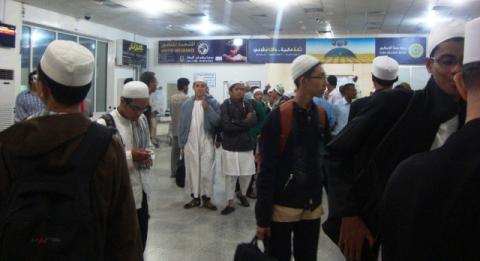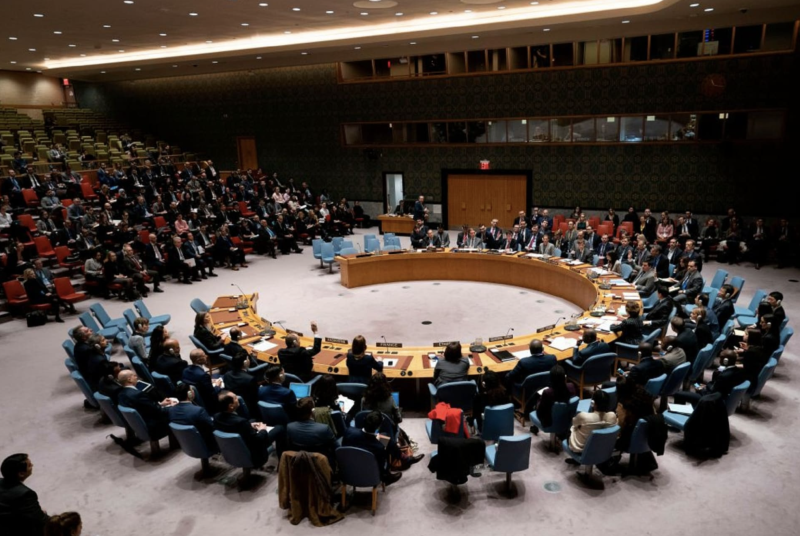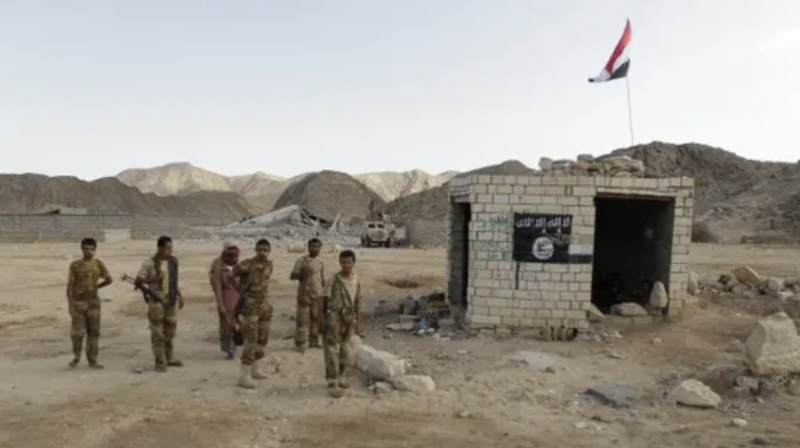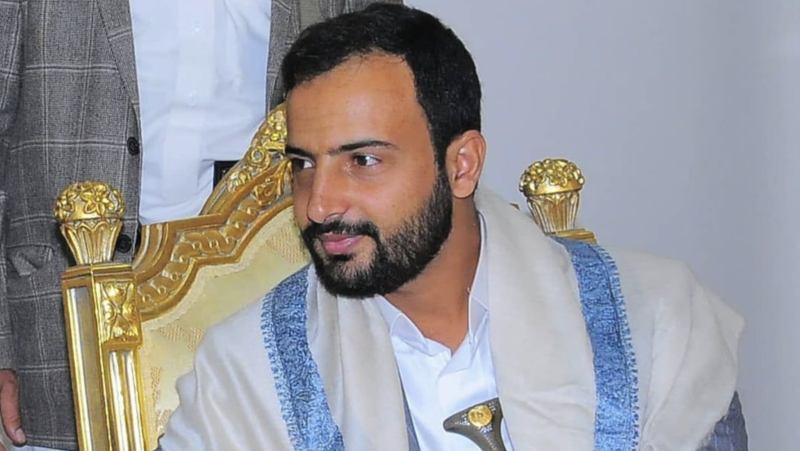Anti-Houthis Demonstrations storm Yemen cities


Angry demonstrators protested the rebels' move in street rallies in several cities, raising fears of a full-blown sectarian conflict between Yemen's new Shiite tribal rulers, known as Houthis, and the disenfranchised Sunni majority.
Last Friday Yemen's Shiite rebels proclaimed a formal takeover of the power , dissolving parliament in a dramatic move that completes their power grab in the region's poorest nation where an al-Qaida terrorist offshoot flourishes.
The unrest could strengthen Yemen's al-Qaida branch, considered the world's most dangerous wing of the terror movement, and complicate U.S. counter-terrorism operations in Saudi Arabia's southern neighbor. While Houthi rebels are bitter enemies to al-Qaida, they also are hostile to the United States, and frosty to the predominantly Sunni Saudis. The region's Shiite powerhouse, Iran, looms as a potential key backer.
White House spokesman Eric Schultz said the United States was "deeply concerned with this unilateral step," but insisted the Houthis' declaration as the true government of Yemen following a four-month insurrection would not affect U.S. counterterrorism efforts there.
Houthi supporters filled the central square in Sanaa, the Yemeni capital, to celebrate the culmination of their coup. They exploded firecrackers and waved banners bearing their slogan "Death to America, death to Israel, a curse on the Jews and victory to Islam." The menacing message is similar to those chanted by Shiite militants in Iraq and Lebanon's dominant Shiite militia, Hezbollah.
Houthi leaders declared that their Revolutionary Committee — a panel of top security and intelligence officials — was Yemen's new supreme governing authority.
The declaration, read on the rebels' Al-Masseria TV network, envisaged "a new era that will take Yemen to safe shores."
But the Houthis, traditionally based in Yemen's north bordering Saudi Arabia, do not control the entire country. Secessionist forces and powerful tribes in the largely Sunni south are likely to confront with violence any effort by the Houthis to exert control there.
The most prominent secessionist figure, Saleh Yahia Said, declared that his aim was to secure an independent state of South Yemen. The leaders of several southern cities said they would never take orders from Sanaa in the country's center.
The Houthis' rebellion began in September, when they advanced on the capital and seized control of much of Yemen. In January they raided the presidential palace and besieged the residence of then-President Abed Rabbo Mansour Hadi. Within days he and his Cabinet resigned. They remain under Houthi house arrest today.
The Houthis had called on Yemen's many factions to negotiate a new governing coalition, but that idea never got off the ground before the Houthis' self-declared deadline expired Wednesday. Several rounds of multi-party talks overseen by the United Nations' envoy to Yemen, Jamal Benomar, came to nothing.
The Houthis' Revolutionary Committee is led by Mohammed Ali al-Houthi, a cousin of the Houthis' leader, Abdel-Malek al-Houthi. It is expected to form a new parliament and a five-member presidential council to succeed Hadi.
The Houthi statement gave no timetable for elections, nor any indication of Hadi's fate.
The nature of the new government raised suspicions that the Houthis intend to rule along Iranian-style lines, mirroring the Iranian Revolution of 1979, when Islamists toppled a pro-Western government and imposed rule based on a council of senior religious figures.
Saudi Arabia, which long has provided an economic lifeline to Yemen, slashed aid following the Houthis' September insurrection and shows no sign of restoring it.
The Houthis' political critics forecast that Friday's gambit would only fuel conflict between the Houthis — who are Zaydis, a Shiite minority sect representing a third of Yemen's population — and the overwhelmingly Sunni rest of the country.
Mohammed al-Sabri, a senior Yemeni political figure who leads a multi-party alliance of opposition parties, said the Houthis would be unable to govern the country and would only fuel its international isolation.
"They are a militia, not a political group," he said.
Rageh Badi, a spokeman for the overthrown Hadi government, predicted that the Houthis' formal declaration of power "will take Yemen to a dangerous slope, including a civil war."
Ali al-Bukhiti, a former member of the Houthis' political arm, called the takeover an insane "horror movie" that would end in Yemen's fragmentation.
"Goodbye Yemen," he wrote on his Facebook page.

NewYork -- The United Nations Security Council has urged all parties in Yemen to de-escalate tensions and intensify diplomatic efforts to end the c…

Marib — A senior al-Qaeda commander was killed Tuesday in a suspected U.S. drone strike in Yemen’s northern province of Mareb, accordin…

London — The United Kingdom has announced new sanctions targeting Hussein al-Houthi, son of Abdulmalik al-Houthi, leader of the Houthi militi…